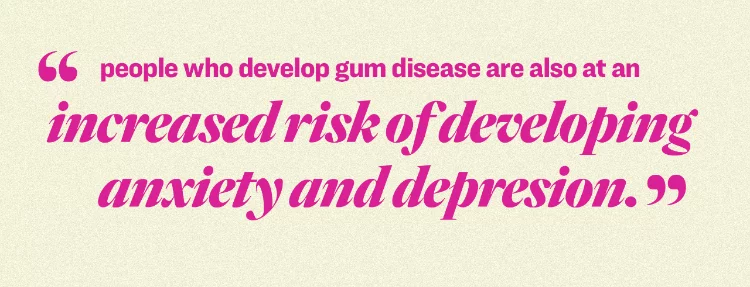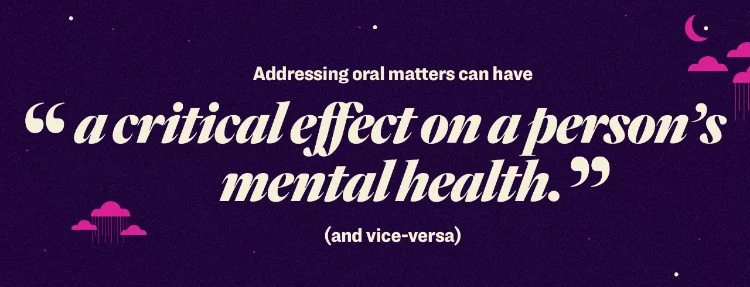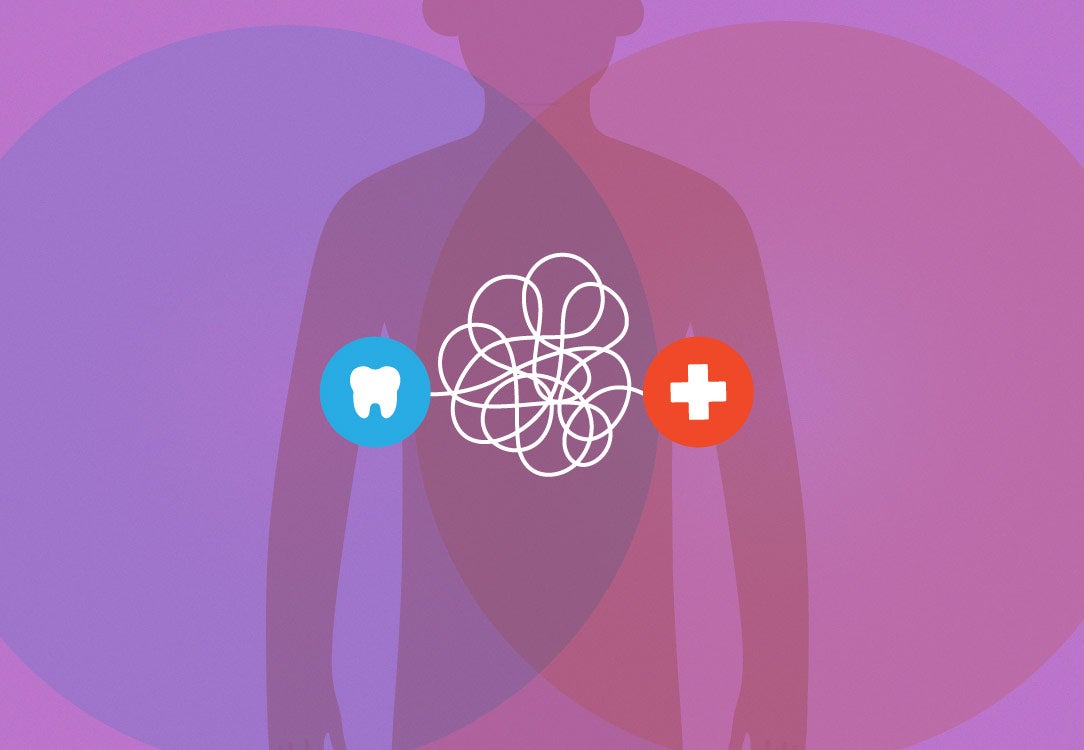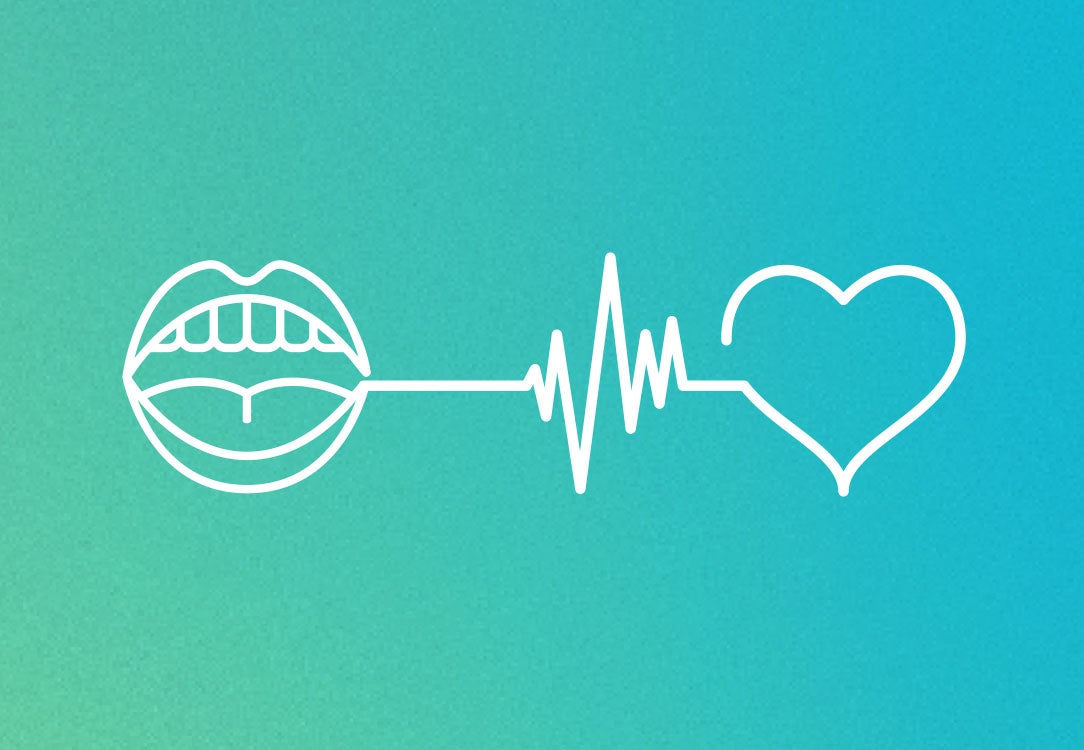Researchers have discovered a significant link between oral health and mental health. It’s another part of the Mouth-Body Connection®; only, in this case, you might call it the Mind-Body Connection. The link is so significant, it inspired one researcher to assert in his 2016 paper that there can be “no mental health without oral health.”
It’s a Relationship That Goes Both Ways

The Effect of Your Oral Health on Your Mental Health
Lower Self Esteem
Anxiety
Depression
Physical Pain
Eating Disorder
The Effect of your Mental Health on Your Oral Health
Neglecting Oral Care
Diet
Substance Abuse
Skipping the Dentist

How To Manage Your Mental Health
- Brush your teeth twice a day with fluoride toothpaste
- Clean between your teeth with dental floss or an interdental brush twice a day
- Stop smoking
- Reduce alcohol use or stop drinking alcohol
- Cut back on sugary foods and drinks
- See your dentist regularly for your teeth cleanings
- Eat a healthy, balanced diet
Speak with a Dentist
Your path to healing starts with communication. Be sure to talk to your dentist if you feel embarrassed about your teeth or smile, or are in pain from something happening in your mouth. They can help determine what is causing the problem and provide an actionable plan to remedy it.
Find your trusted, local dentist today!
Sources
[i] Kisely, S. (2016). No mental health without oral health. Canadian Journal of Psychiatry, 61(5), 277–282. https://journals.sagepub.com/doi/10.1177/0706743716632523
[i] Melore, C. (2021). Gum disease increases risk for mental health problems by nearly 40 percent, study shows. KTLA. Retrieved May 4, 2022, from https://ktla.com/news/nationworld/gum-disease-increases-risk-of-developing-mental-health-problems-by-nearly-40-study-shows/
[ii] WebMD. (2021). What to know about oral health and mental health. Retrieved May 4, 2022, from https://www.webmd.com/oral-health/what-to-know-about-oral-health-and-mental-health
[iii] Kaur, P., Singh, S., Mathur, A., & et al. (2017). Impact of dental disorders and its influence on self-esteem levels among adolescents. Journal of Clinical and Diagnostic Research, 11(4), ZC05–ZC08. https://jcdr.net/article_fulltext.asp?issn=0973-709x&year=2017&volume=11&issue=4&page=ZC05&issn=0973-709x&id=9515
[iv] Grinmag. (2022). The connection between oral and mental health. Retrieved May 4, 2022, from https://www.grinmag.com/archive/en/ddnj/2017/wellness/oral-and-mental-health-connection/
[v] Oral Health Foundation. (2022). Mental illness and oral health. Retrieved May 4, 2022, from https://www.dentalhealth.org/mental-illness-and-oral-health
[vi] Hudson, J. (2021). How mental health affects oral health. Nature. Retrieved May 4, 2022, from https://www.nature.com/articles/s41406-021-0225-3
Smile Generation blog articles are reviewed by a licensed dental professional before publishing. However, we present this information for educational purposes only with the intent to promote readers’ understanding of oral health and oral healthcare treatment options and technology. We do not intend for our blog content to substitute for professional dental care and clinical advice, diagnosis, or treatment planning provided by a licensed dental professional. Smile Generation always recommends seeking the advice of a dentist, physician, or other licensed healthcare professional for a dental or medical condition or treatment.








